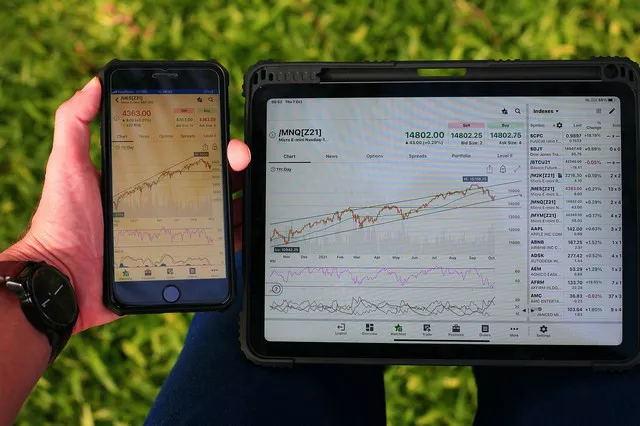Commodity futures trading offers the potential for significant returns, but it is not without its inherent risks. Investors venturing into the world of commodity futures must grasp the complexities of this market and adopt strategies to mitigate potential losses. In this article, we will explore the various risks associated with commodity futures trading and provide insights into how traders can navigate these uncertainties to achieve a balanced and informed approach.
Market Price Volatility
One of the primary risks associated with commodity futures trading is market price volatility. Commodities, influenced by factors such as supply and demand dynamics, geopolitical events, and economic indicators, can experience rapid and unpredictable price fluctuations. The volatility of commodity prices can result in substantial gains, but it also exposes traders to the risk of significant losses. It is crucial for investors to conduct thorough market analysis, stay informed about relevant news and events, and implement risk management strategies to navigate the challenges posed by market volatility.
Leverage and Margin Calls
Leverage is a double-edged sword in commodity futures trading. While it allows traders to control a larger position with a relatively small amount of capital, it also magnifies the potential for both gains and losses. The use of leverage increases the risk of margin calls, where traders may be required to deposit additional funds to maintain their positions. Failure to meet margin requirements can lead to forced liquidation of positions, resulting in realized losses. Traders must exercise caution when using leverage and carefully manage their margin levels to avoid unnecessary risks.
Market Liquidity
Market liquidity, or the ease with which a commodity futures contract can be bought or sold without affecting its price, is another risk factor in this market. Illiquid markets may exhibit wider bid-ask spreads, making it more challenging for traders to execute trades at desired prices. Low liquidity can also contribute to increased price slippage, where the executed price differs from the expected price. Traders should carefully select contracts with sufficient liquidity to ensure smooth entry and exit from positions, minimizing the impact of transaction costs and slippage.
Global Economic Factors
Commodity prices are strongly influenced by global economic factors, and traders in commodity futures markets are exposed to risks associated with international events. Economic downturns, geopolitical tensions, and currency fluctuations can impact the supply and demand dynamics of commodities, leading to price movements that may not be easily predicted. Traders must stay informed about global economic conditions and consider the broader economic context when making trading decisions in commodity futures markets.
See Also: Why are futures better than forwards?
Interest Rate Risk
Interest rate movements can have a significant impact on commodity futures prices. Changes in interest rates can affect the cost of financing for market participants and influence the demand for commodities. Additionally, fluctuations in interest rates may impact the opportunity cost of holding commodities versus other financial instruments. Traders should monitor interest rate trends and consider their potential impact on commodity prices when developing trading strategies.
Weather and Natural Disasters
Certain commodities, particularly agricultural and energy products, are highly sensitive to weather conditions and natural disasters. Crop yields, for example, can be significantly affected by adverse weather events such as droughts, floods, or hurricanes. Similarly, disruptions to energy infrastructure caused by natural disasters can impact the supply and pricing of energy commodities. Traders involved in commodities vulnerable to weather-related risks should carefully assess seasonal patterns and stay informed about potential weather-related developments that could impact prices.
Regulatory and Political Risks
Commodity futures markets are subject to regulatory changes and political developments that can impact market dynamics. Government policies, trade agreements, and regulatory interventions can introduce uncertainties and influence commodity prices. Traders should stay abreast of relevant regulations, political events, and policy changes that may affect the commodities they are trading. Additionally, geopolitical tensions and international conflicts can introduce unforeseen risks, highlighting the importance of a comprehensive risk management strategy.
Counterparty Risk
Commodity futures trading involves transactions with various counterparties, including brokers, exchanges, and clearinghouses. Counterparty risk refers to the risk that one of these entities may default on their obligations, potentially leading to financial losses for traders. It is essential for traders to carefully select reputable brokers and trading platforms with robust risk management measures in place. Additionally, understanding the role of clearinghouses in mitigating counterparty risk is crucial for safeguarding capital in commodity futures trading.
Diversification Challenges
While diversification is a widely recognized risk management strategy, it may present challenges in commodity futures trading. Some commodities exhibit high levels of correlation due to shared market factors or economic conditions. Achieving effective diversification may require a deep understanding of the underlying factors influencing each commodity and careful selection of contracts with diverse risk profiles. Traders should be aware of potential limitations to diversification and consider alternative risk management strategies to address concentrated exposures.
Educational and Informational Risks
Lack of knowledge and information can pose a significant risk for traders entering the commodity futures market. Inadequate understanding of market fundamentals, trading strategies, and risk management techniques can lead to poor decision-making and increased susceptibility to losses. Traders should invest time in educating themselves about the intricacies of commodity futures trading, seek reputable sources of information, and consider leveraging educational resources offered by exchanges and industry experts.
Conclusion
Commodity futures trading presents opportunities for profit, but it also comes with inherent risks that traders must acknowledge and manage. Successful navigation of these risks requires a combination of market knowledge, disciplined execution, and effective risk management strategies. By understanding the complexities of commodity markets, staying informed about relevant factors, and implementing prudent risk management practices, traders can enhance their ability to safeguard capital and achieve long-term success in the dynamic world of commodity futures trading.


